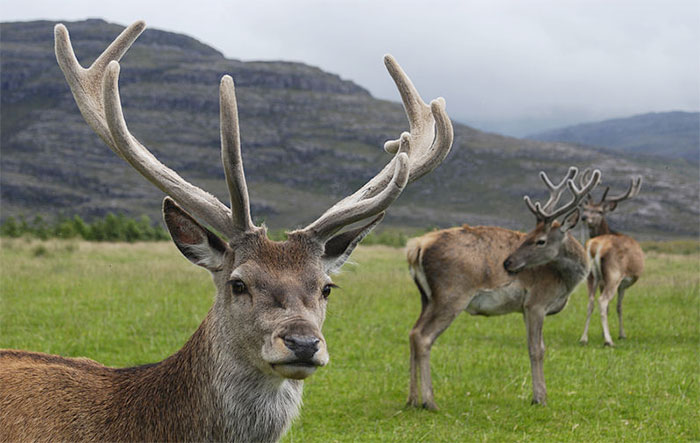
The call for a nationwide cull of half the UK's deer population following the publication of a report by the University of East Anglia has been branded as 'extreme' by the Association of Deer Management Groups.
The University report claims that culling deer at this level would stop damage to woodland structure and vegetation.
"A mass UK wide cull is not the answer" said Richard Cooke, Chairman of both the Association of Deer Management Groups and the Lowland Deer Network Scotland.
"This should not be about numbers, but about impacts, and in Scotland I would argue strongly that we know what our responsibilities are, we know where deer species are impacting locally, and we know how to tackle that."
The association said the report's conclusions 'should not be presumed to apply in Scotland' where the deer related problems are the exception and not the rule.
The total population stands at around 1.5 million and a study released by the Journal of Wildlife Management said numbers would be more stable if a cull was allowed to commence.
The Wildlife and Natural Environment Bill Scotland has helped to reinforce the duties of deer managers to manage the deer on their ground sustainably.
Research has shown there are now more deer in the UK than any time since the Ice Age and the RSPCA said a cull must first be based on strong science.
The RSPCA said they were "opposed in principle to the killing or taking of all wild animals unless there is strong science to support it, or evidence that alternatives are not appropriate.
"Even if a cull is supported by science, it is very important that it is carried out in a humane and controlled way.
"Any decision to carry out a cull must be taken on a case by case basis based on the specific issues which impact a specific area. We don't believe this should be rolled out in a uniform way across the whole country. It is certainly not a case of one size fits all."
Although population numbers of roe deer in Scotland's low grounds are less precise, both public and private sector interests are involved and the new Lowland Deer Network Scotland has been established to bring together all relevant bodies including farmers, landowners and local authorities.
The Scottish Gamekeepers Association has also said a culling would 'spell disaster' for many rural communities.
Gamekeepers believe, if this was carried through in Scotland, it could make many communities in rural Scotland unviable, leading to job losses.
Scottish Gamekeepers Association Chairman Alex Hogg said: "It would be absolutely and unequivocally wrong to take this science, gleaned from studying one forested area of East Anglia, and apply it to all parts of the UK, particularly Scotland. A one-size-fits-all approach would have serious repercussions."
In Scotland, some areas have a deer population which requires careful, selective management to keep the numbers balanced at the right level.
However, in other areas the affects are being felt because deer have virtually vanished, largely due to unfenced forest regeneration.
In many of these areas, stalking income keeps the hotels and guest houses, shops and schools open. It keeps jobs in these areas and the benefits trickle down through the community. Many of these communities are struggling because deer numbers have fallen so low.
"Culling at the levels suggested, therefore, from a figure plucked from one area of East Anglia, could lead to empty glens if sustained.
"Conservation would work better, and would be better applied, if it also took people into account."
